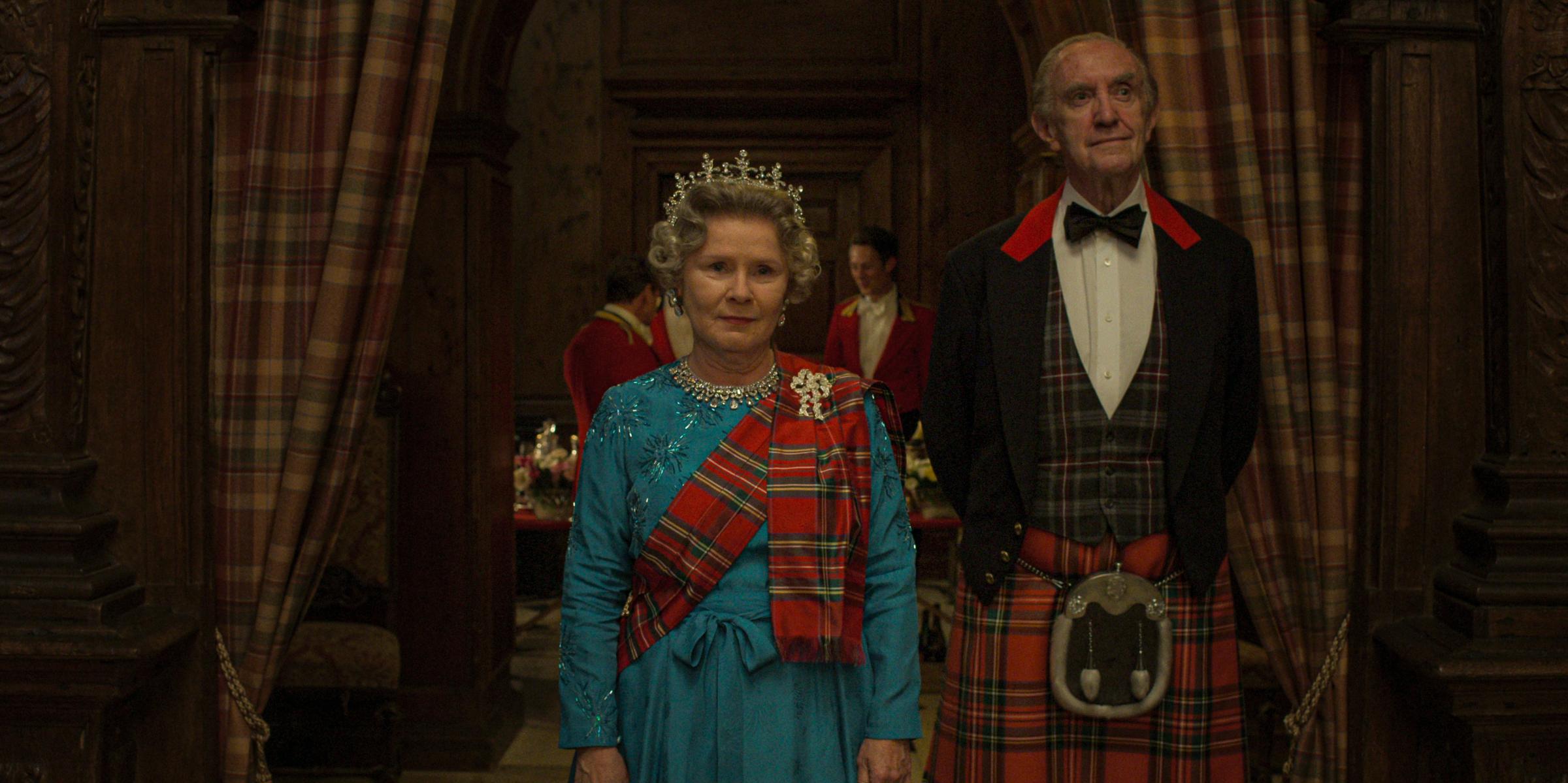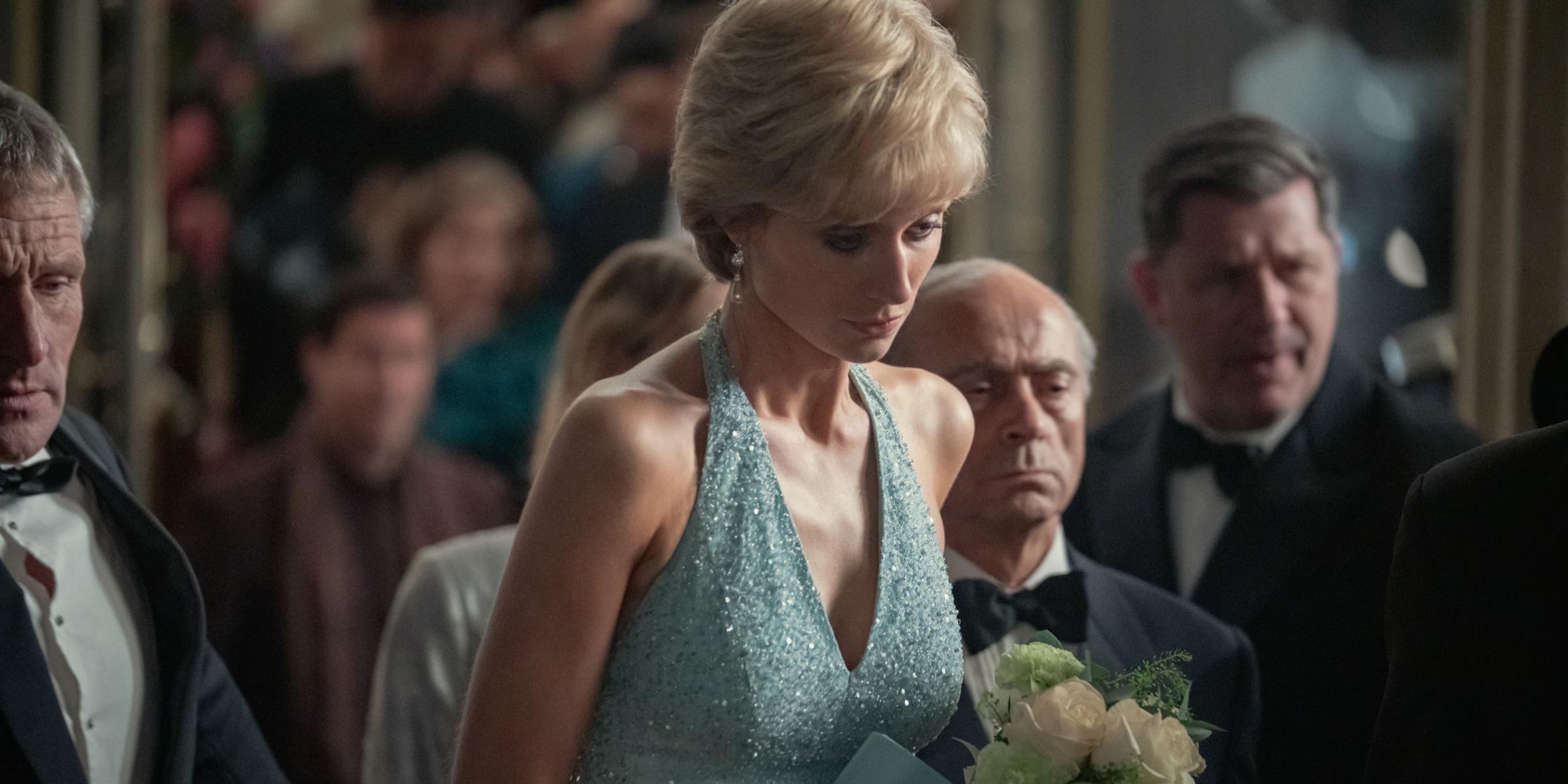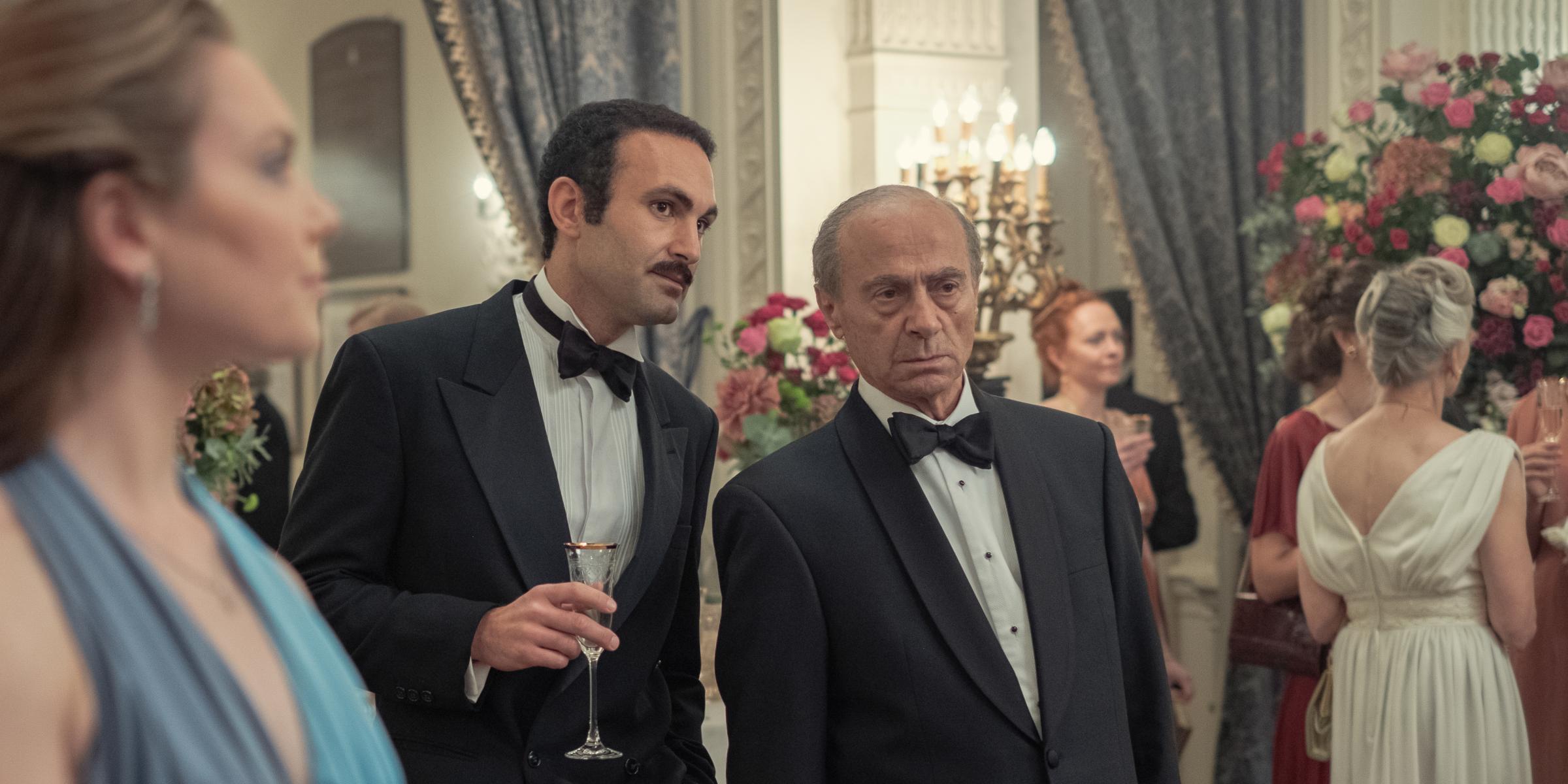Finally, it’s the ’90s. After four seasons of ceremonies, scandals, and endless hand-wringing over the future of the monarchy, the episodes that House of Windsor obsessives have been anticipating since before The Crown premiered will arrive on Nov. 9. Charles and particularly Diana take center stage as their marriage unravels in shockingly public fashion. Camilla, Dodi, Panorama, Tampongate—creator Peter Morgan delves into all of it. What he doesn’t spend much time on in the show’s fifth season is the Queen herself. And frankly, that’s for the best.
Like the guards at Buckingham Palace, stars of The Crown rotate in and out at regular intervals, to much choreographed fanfare. Claire Foy’s tentative, frustrated young Elizabeth gave way to Olivia Colman’s stubborn, middle-aged horse girl—both compelling portrayals. Imelda Staunton, a doyenne of stage and screen so accomplished that her list of awards has its own lengthy Wikipedia page, seemed a solid choice to portray the monarch in her golden years. In practice, though, Staunton’s Elizabeth is impassive to the point of opacity. A stiff upper lip comes with the royal territory, but Foy and Colman accessed layers beneath that surface. Staunton’s performance isn’t embarrassing, but it lacks interiority. Even in an emotional episode framed by the Queen’s infamous 1992 “annus horribilis” speech, the character doesn’t feel entirely present.
To be fair to the great actress, that remoteness seems to reflect Morgan’s inert vision of Elizabeth in her fifth decade on the throne. Season 5 is bookended by episodes that draw parallels between the Queen and an increasingly decrepit Royal Yacht Britannia, which made its maiden voyage just a few years into her reign and was decommissioned, over her objections, in 1997. Mentions of “Queen Victoria Syndrome” haunt the palace corridors. In a rare moment of self-awareness, as a young Prince William (Senan West, the real-life son of Dominic West, who takes over the role of Charles) tries to fix the ancient, simple TV set his grandmother prefers to newfangled cable and satellite options, she jokes that “even the televisions are metaphors in this place.” As if all the comparisons to objects and dead people didn’t paint a clear enough picture, at one point Elizabeth comes out with her own interpretation of the season’s events: “Charles is angry because the Crown has many of the functions of an inanimate object. He prefers to be animate. But there’s a danger in that. One can end up undoing more than doing.”

Be that as it may, the tempest surrounding Charles and Diana saves a show that’s spent most of its run stuck in a holding pattern, as the Queen has reliably chosen tradition over change and allowed anyone who wished to live differently to be crushed by the Firm. Morgan doesn’t lose sight of these casualties in season 5. The scope of the damage is quite clear, as the once-vital Princess Margaret (a magnificent Lesley Manville) takes stock of a life derailed by her sister’s refusal to evolve. One of the show’s sharpest, saddest ongoing story lines traces Elizabeth’s perpetual failure to comprehend the suffering she’s inflicted on Margaret over the years.
Read More: As King Charles III Sets Out to Win Hearts and Minds, The Crown Dredges Up His Darkest Chapter
But one reason that Diana, portrayed here with an exquisite mix of grace, grit, and vulnerability by Elizabeth Debicki, remains iconic a quarter-century after her death is that she was the first major player in this royal saga to break the cycle of repression and self-sacrifice. Two insightful episodes devoted to her soul-baring interview with Martin Bashir (Prasanna Puwanarajah) on BBC One’s Panorama illustrate just how much courage that took. Instead of restaging much of the telecast, which seemingly everyone in the world watched when it aired and which remains viewable on various platforms today, Morgan wisely focuses on adding context. Bashir comes out looking fully evil. More artful and considered is the show’s snapshot of the BBC as an institution in the ’90s, where journalists battle aristocrats bent on protecting the Queen and debates rage over whether the Waleses’ separation is a serious news story or tabloid trash.

From the beginning, when Emma Corrin played an impish teenage Diana Spencer, The Crown has resisted depicting the People’s Princess as anything so simple as a secular saint, a narcissistic media manipulator, or the spiraling martyr of Pablo Larraín’s unhinged Spencer. There are glimpses of all these Dianas in Debicki’s performance, a highlight of the season, but mostly she comes across as a sincere, kind-hearted, and lonely, if socially ambitious, woman who got married too young, to a man whose heart belonged to someone else, while cameras rolled and minders hovered and the people who isolated her from any remnant of her previous life expected her to pretend to be OK. One grounding scene has Diana continuously redialing a TV debate show to register multiple no votes on the question of whether the British monarchy is worth keeping. The pettiness in the face of powerlessness only enhances her likability.
A maximalist actor with an imposing physical presence, West is miscast as the aloof Charles. (He’s also, at 53, significantly closer in age to Staunton than he is to Debicki.) But his predicament is compelling enough that, by mid-season, I started to believe him as, well, some fictional prince whose biography bears a stunning resemblance to that of Britain’s new King. Here is a guy promoting a much-needed vision for modernizing the monarchy—for making it more progressive, humane to the royal family, and useful to the public—yet no one will take him seriously because he’s made a mess of his marriage. “I have enormous sympathy for a man in his position,” Morgan recently said of Charles. That is, if anything, a bit too obvious in one episode that devolves into a commercial for his charity work with the Prince’s Trust.

More than half of the season’s episodes center around Charles and Diana, which might sound like pandering if you prefer The Crown in high-minded-historical-drama mode. Yet Morgan often uses them as a vehicle for doing what the show does best: braid together the lives of the Windsors with stories that take place far outside the palace walls. A full episode devoted to the rags-to-riches story of Dodi Fayed’s (Khalid Abdalla) father, Mohamed Al-Fayed (Salim Dau, excellent), feels refreshing after a plodding start to the season, which follows up the Britannia saga with an extended account of Prince Philip (Jonathan Pryce) making a new friend. (The show does seem a bit too eager to dismiss Dodi as a debauched playboy. A scene involving sex and cocaine on a private plane could’ve come straight out of Entourage.) When Charles and Diana finally get divorced, the episode is peppered with exit interviews from regular couples who split in the same courtroom on the same day. Their everyday problems—money, growing apart, disagreements over whether to have kids—put the royals’ rarefied ones in perspective.
Read More: How a Sprawling Drama About Elizabeth II Became Netflix’s Crown Jewel
The Crown has always been both a pleasure to watch, thanks to its lush production design and soapy undertones, and a more mixed success from an artistic standpoint. Season 5 is the same, but for different reasons. While the acting is no longer stellar across the board, and a vividly evoked Queen Elizabeth no longer dominates the story, the narrative itself becomes richer than ever. It works on the macro level, connecting the family’s intergenerational tension with the youthful insurgency of Tony Blair’s New Labour, and in small moments, like Diana’s tearful speech to her paramour Dr. Hasnat Khan (Humayun Saeed): “You forget I already had a prince. He broke my heart. I’m just looking for a frog to make me happy.” Her loneliness reverberates through the season, echoed by that of Charles, Margaret, Philip, Camilla (Olivia Williams), and the rest. Ironically, it’s in isolation that she truly becomes a Windsor.
More Must-Reads from TIME
- Donald Trump Is TIME's 2024 Person of the Year
- Why We Chose Trump as Person of the Year
- Is Intermittent Fasting Good or Bad for You?
- The 100 Must-Read Books of 2024
- The 20 Best Christmas TV Episodes
- Column: If Optimism Feels Ridiculous Now, Try Hope
- The Future of Climate Action Is Trade Policy
- Merle Bombardieri Is Helping People Make the Baby Decision
Contact us at letters@time.com